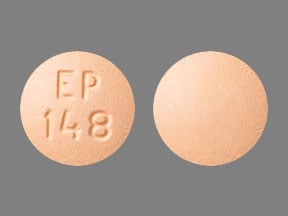
Lithobid Coupons & Savings Card – Discount Prices from $11.70
Brand for: Lithium carbonate er
My prescription
Edit
300MG, Lithium Carbonate ER (60 Tablet Extended Releases)
Select pharmacy

CVS
$26.66
COUPON PRICE
Walmart
$11.70
COUPON PRICE
Walgreens
$12.42
COUPON PRICE
Albertsons
$22.04
COUPON PRICELithobid savings card
Show this card to your pharmacist
Walmart
$11.70
BIN
ID
PCN
GRP
019876
LH33E3C948
CHIPPO
LHX
Powered by
Related mood stabilizers prescriptions
More prescriptions for bipolar disorder
Related mood stabilizers prescriptions
More prescriptions for bipolar disorder
Price history for Lithobid (brand) & Lithium Carbonate ER (generic)
60 Tablet Extended Releases, 300MG
Average retail price for Lithobid
Average retail price for Lithium Carbonate ER
Average SaveHealth price for Lithium Carbonate ER
Our price history data is based on aggregated prescription data collected from participating pharmacies in America. Our prescription data updates daily to reflect the latest price changes. If you notice a missing data point, it means there wasn't sufficient data available to generate a monetary value for that date.
Over the last 12 months, the average discount price of Lithobid is $54.32 using the SaveHealth savings card. That's an average savings of 96.60% on Lithobid with our discount card.
*Retail prices are based on pharmacy claims data, and may not be accurate when we don't have enough claims.
Lithobid (Lithium Carbonate ER) dosage forms
Dosage Quantity Price from Per unit 300MG 60 Tablet Extended Releases $11.70 $0.20 300MG 1 Tablet Extended Release $2.65 $2.65 300MG 30 Tablet Extended Releases $7.10 $0.24 300MG 100 Tablet Extended Releases $24.34 $0.24 300MG 500 Tablet Extended Releases $96.00 $0.19 300MG 6000 Tablet Extended Releases $862.70 $0.14
| Dosage | Quantity | Price from | Per unit |
|---|---|---|---|
| 300MG | 60 Tablet Extended Releases | $11.70 | $0.20 |
| 300MG | 1 Tablet Extended Release | $2.65 | $2.65 |
| 300MG | 30 Tablet Extended Releases | $7.10 | $0.24 |
| 300MG | 100 Tablet Extended Releases | $24.34 | $0.24 |
| 300MG | 500 Tablet Extended Releases | $96.00 | $0.19 |
| 300MG | 6000 Tablet Extended Releases | $862.70 | $0.14 |
What is Lithobid prescribed for?
Lithobid is prescribed for the treatment and management of bipolar disorder. It is used to help stabilize mood and reduce the frequency and severity of manic episodes.
What is the difference between lithium and Lithobid?
Lithium is a mood stabilizer commonly used to treat bipolar disorder. Lithobid is a brand name for a specific formulation of lithium carbonate that is designed to release the medication slowly over time, providing a more stable blood level and potentially reducing side effects. Essentially, Lithobid is an extended-release version of lithium.
Is Lithobid a controlled substance?
Lithobid is not classified as a controlled substance. It is a brand name for lithium carbonate, which is used to treat certain mood disorders.
Is Lithobid the same as lithium?
Lithobid is a brand name for a medication that contains lithium carbonate as its active ingredient. Therefore, Lithobid and lithium refer to the same active substance, but Lithobid is a specific formulation of lithium.
What class of drug is Lithobid?
Lithobid is classified as a mood stabilizer. It is commonly used to treat and manage bipolar disorder.
